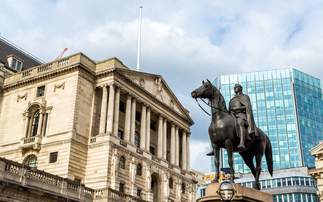Greece will be free to borrow money on its own terms for the first time in eight years after successfully completing a three-year eurozone bailout programme.
In the wake of its debt crisis, Greece was given loans amounting to more than €260bn by the eurozone and the International Monetary Fund (IMF), under strict conditions that forced the country into a series of harsh austerity measures. Assessing the longer-term risks stemming from public sector indebtedness As part of the biggest bailout in global financial history, the European Stability Mechanism (ESM) - a eurozone fund established to help its member nations deal with a financial crisis - provided Greece with €61.9bn over the three years, supporting the country's efforts to reform it...
To continue reading this article...
Join Investment Week for free
- Unlimited access to real-time news, analysis and opinion from the investment industry, including the Sustainable Hub covering fund news from the ESG space
- Get ahead of regulatory and technological changes affecting fund management
- Important and breaking news stories selected by the editors delivered straight to your inbox each day
- Weekly members-only newsletter with exclusive opinion pieces from leading industry experts
- Be the first to hear about our extensive events schedule and awards programmes









